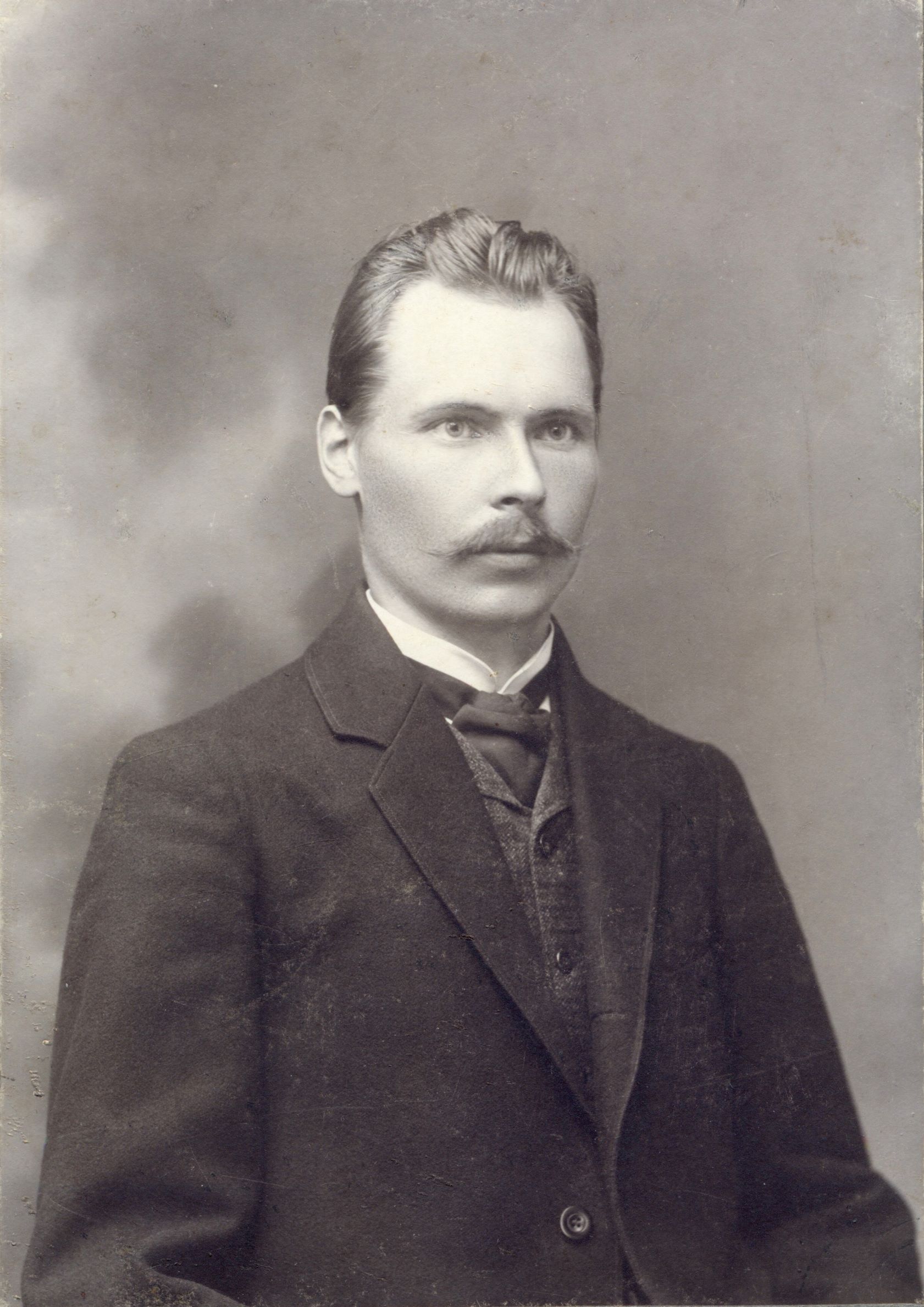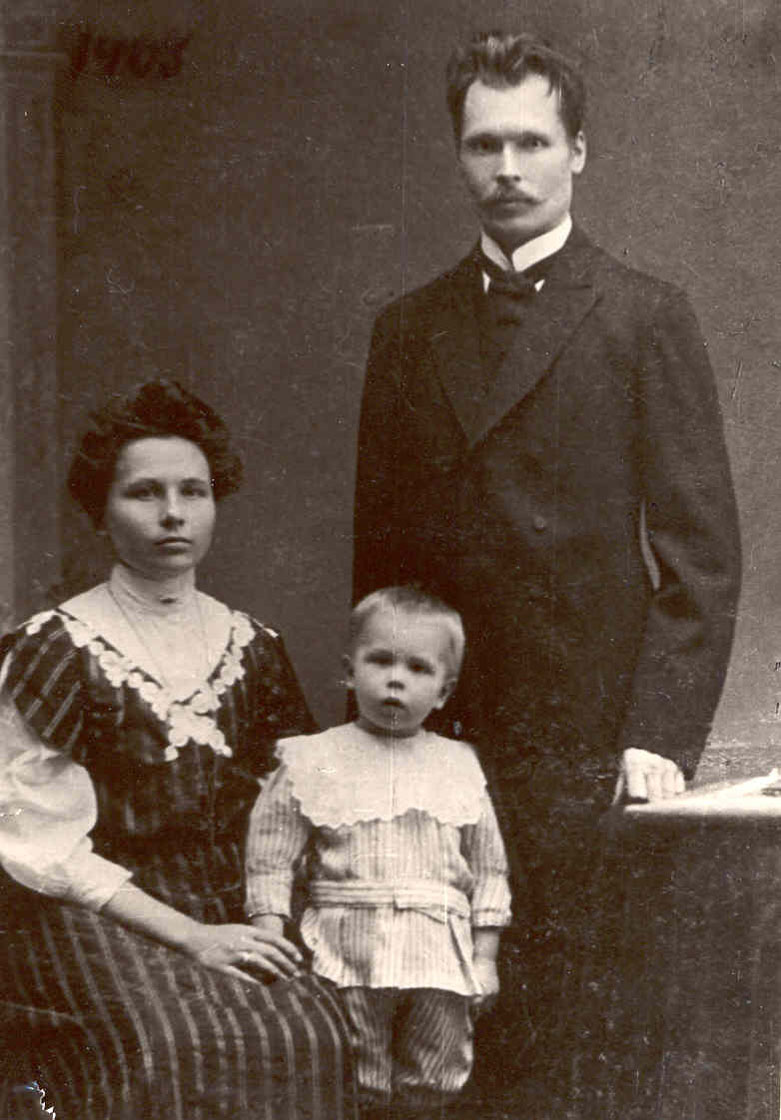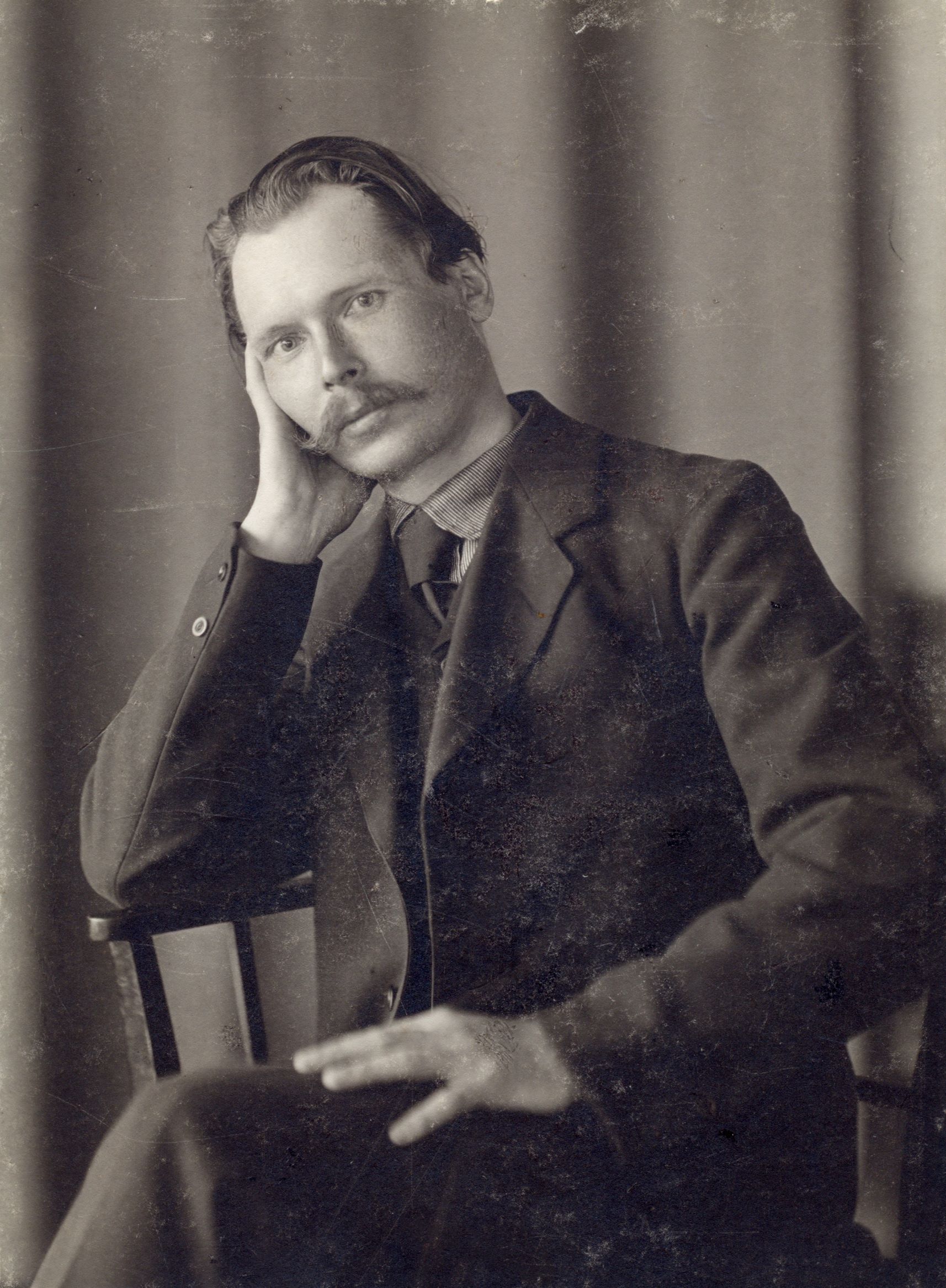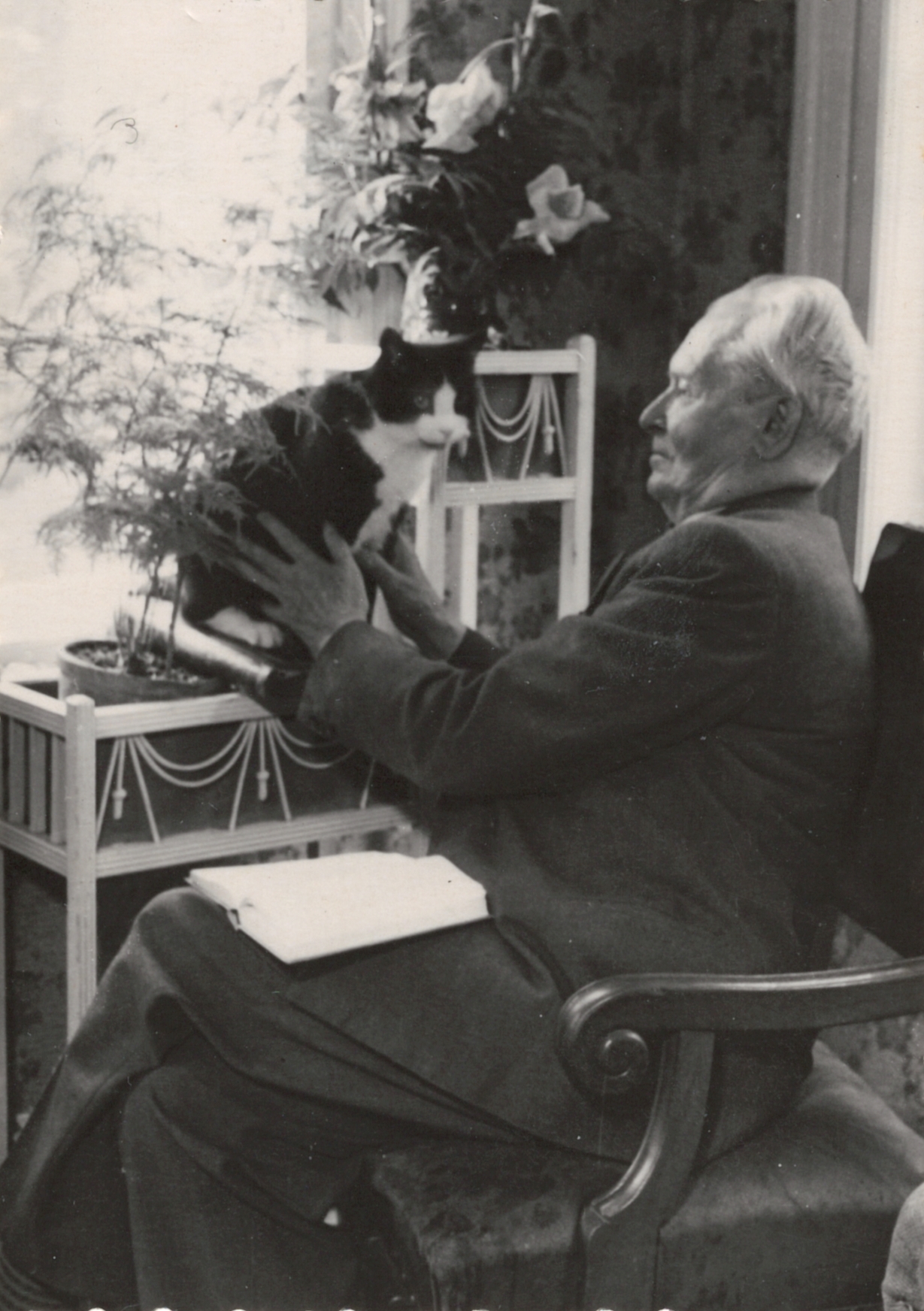Andrejs Upīts may have been the most productive Latvian author with the broadest vocabulary, but he has often been criticised for his “leftist” political leanings. Upīts’ life is important, because without much prettiness, it covered Latvia’s severe and complicated history for nearly a century ˗ from the everyday lives of poor farmers in the 19th century to the period of the Soviet elite.

Andrejs Upīts
1877–1970
Galerija
Upīts released 21 novels, 10 collections of short stories, several novellas, and a series of plays, including historical tragedies, dramas and comedies. He spent his whole life as a specialist in the area of literature and was a passionate publicist, poet and translator. Upīts’ collected works were released in 22 volumes. Some researchers think that 60 volumes would be needed to cover his entire creative heritage.
Upīts’ contributions represent a great diversity in terms of genre and content. In the context of the 1920s and 1930s, he presented very brilliant and modern books, including the short story collections “Outside Paradise” (Aiz paradīzes vārtiem), “Metamorphoses” (Metamorfozes), and “Naked Life” (Kailā dzīvība). His novels “Woman” (Sieviete) and “Gold” (Zelts) were full of the aesthetics of naturalism, and Upīts’ discussed the fates of the Latvian nation during various centuries in his realist novels “Twists of Eras” (Laikmetu griežos), “At the Gates of Thunder” (Pērkona pievārtē) and “Northern Wind” (Ziemeļu vējš). Elements of crooks are found in “Along the Rainbow Bridge” (Pa varavīksnes tiltu) and “The Smiling Page” (Smaidoša lapa), which is better known because it was filmed by Leonīds Leimanis and renamed “Visiting the Rich Lady” (Pie bagātās kundzes). “Mirabo,” “Jeanne de Arc” (Žanna d’Ark) and “Spartacus” (Spartaks) were historical tragedies, and Upīts’ also wrote stories for adults and children. Among them was the long story “The Boys of Moss Village” (Sūnu ciema zēni). The life motto for the author was never to ignore any line that was written in Latvian. It is essential that Andrejs Upītis wrote extensive literary criticism, as well as several books about literature. Together with literature specialist Rūdolfs Egle he wrote a unique “History of World Writing” (Pasaules rakstniecības vesture) in four volumes.
The author was born on December 4, 1877, at the Kalniņi homestead near Skrīveri, where his father rented land. That is where Upīts grew up. He attended the parish school in Skrīveri, where he finished six grades. From there on, Upīts was mostly self-educated. He learned German, Russian, English, French and Italian and worked as a teacher, translator and social activist. Soon Upīts began to publish stories, poems and his first books. People quickly learned about the young author and critic.
From 1908 until 1915, Upīts, his wife Olga and their son Kārlis lived in Skrīveri. Upīts worked very hard, and some of his most outstanding works are from that period. During free time, the author just adored pottering around in his garden.
After a refugee period during World War I, the Upīts family returned home to see utter destruction. The house had collapsed, Upīts’ vast library was gone, and trees had been chopped down. In 1921, a new house was built on the old foundations, and the garden was expanded. The author spent his summers there until 1940 and wrote and translated books.
At the beginning of World War II, Andrejs Upīts and his family were evacuated to the Kirov region in Russia. He wrote his cultural and historical epic “The Green Land” (Zaļā zeme) there. Upīts’ considered that to be his greatest achievement in life and called “Green Land” his “monument.” After returning to Rīga after the war, Upīts became the head of the Latvian Literature Department at the University of Latvia, as well as a professor. He was the founder and director of the Institute of Language and Literature at the Latvian SSR Academy of Sciences, as well as the chairman of the Latvian Writers’ Union. Andrejs Upīts earned a doctorate in philology, was given the title of a Soviet Latvian people’s author, and was also declared an academician at the Latvian SSR Academy of Sciences.
Andrejs Upīts died in Rīga on November 17, 1970, and was buried at the Riga Forest Cemetery.




